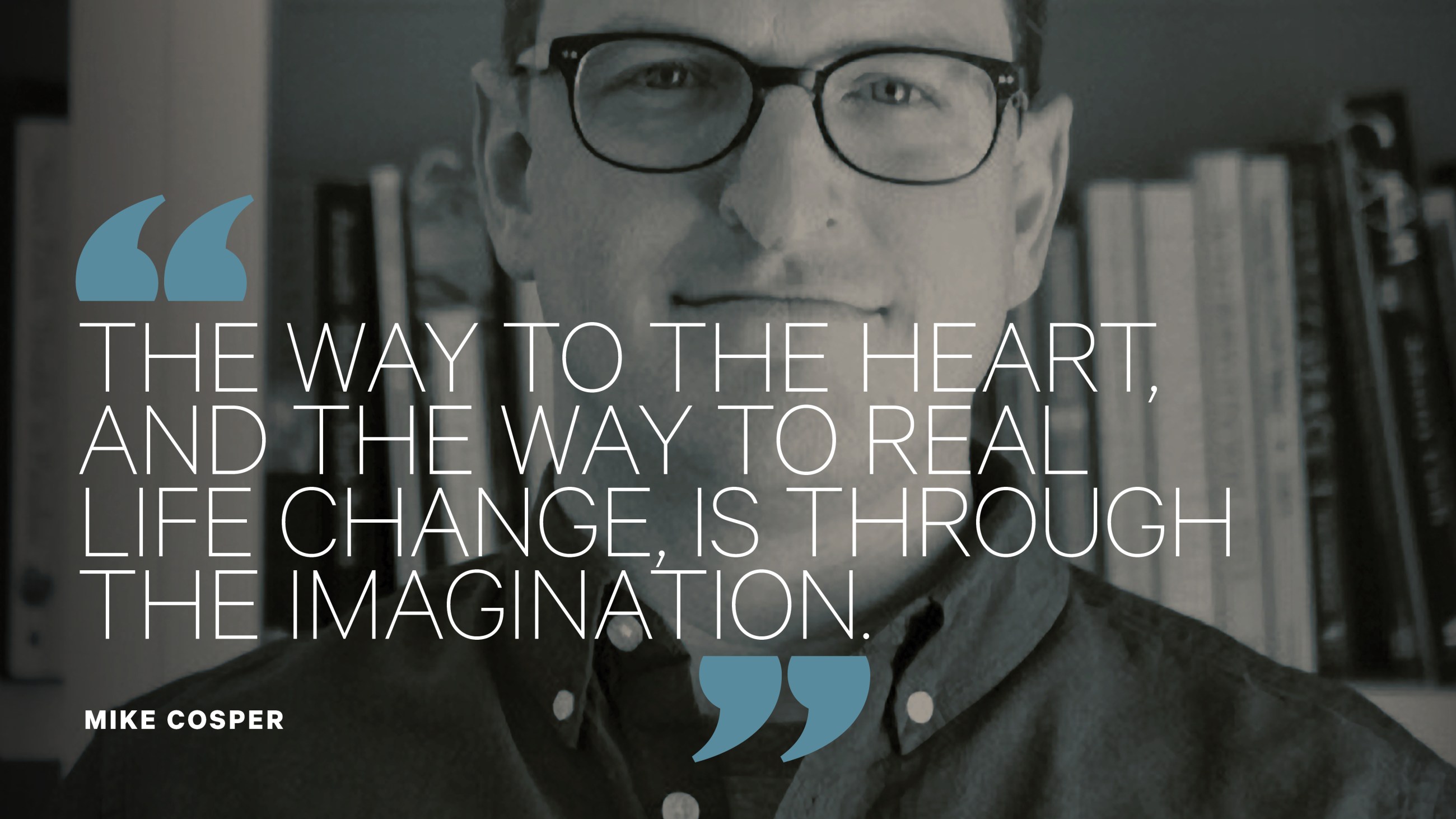To some Christians, America’s increasingly postmodern, pluralistic culture presents a threat to our national religious identity. Mike Cosper thinks differently. As the founder and director of the Harbor Institute for Faith and Culture and creator of the podcasts Cultivated and The Devil & the Deep Blue Sea, Cosper says he’s called to help equip Christians to live faithfully in a post-Christian world—which in part means embracing opportunities to share God’s truth not only through proposition-driven sermons, but also through storytelling, art, and service to the common good.
On this week’s episode of The Calling, Cosper sits down with CT Managing Editor Richard Clark to talk about his love for storytelling, the need for creativity in church, and how art and narrative can speak to the culture in ways sermons can’t.
On making theology about personal experience: “I think of Charles Taylor’s phrase ‘the ethics of authenticity’—that we live in this age where the only ethic that governs and that’s sort of universally accepted is ‘you have to be true to yourself, you have to be authentic to yourself.’ There are problems with that way of looking at theology. To me, theology in particular, and Christianity as a whole, is sort of this prismatic thing: There are all these different angles on any doctrine, on any idea. Not any one of them should trump all the others. The historicity of Christianity really, really matters. The power of tradition really, really matters. But at the same time, a value like ‘always reforming’—that stuff really matters. So does personal narrative.”
On showing our neighbors that the church is for them: “If you are genuinely contributing to the flourishing of a city and a community, it’s really hard for people to push you out. So do good work, and work really hard, and value your city. But also, be aware of what time it is, and be concerned. Lift your voice up.”
On why the church needs creatives in the pews: “Artists in the church are often treated as second-class citizens—‘oh, that creative stuff you do, that’s cool, but music is really the appetizer, and the sermon is the main meal.’ Evangelicalism is a very modern movement in the sense that it emphasizes the rational and the propositional in a really strong way. I don’t want to dismiss those things, but I think we can do a better job of doing spiritual formation for the whole person. That’s why you need creative people in your community—creative people who share your rational, propositional beliefs, but who express them in ways that touch on the imagination and the heart.”
Subscribe to The Calling on iTunes.
The Calling is produced by Richard Clark and Cray Allred.
Theme music by Lee Rosevere, used under Creative Commons 4.0.









